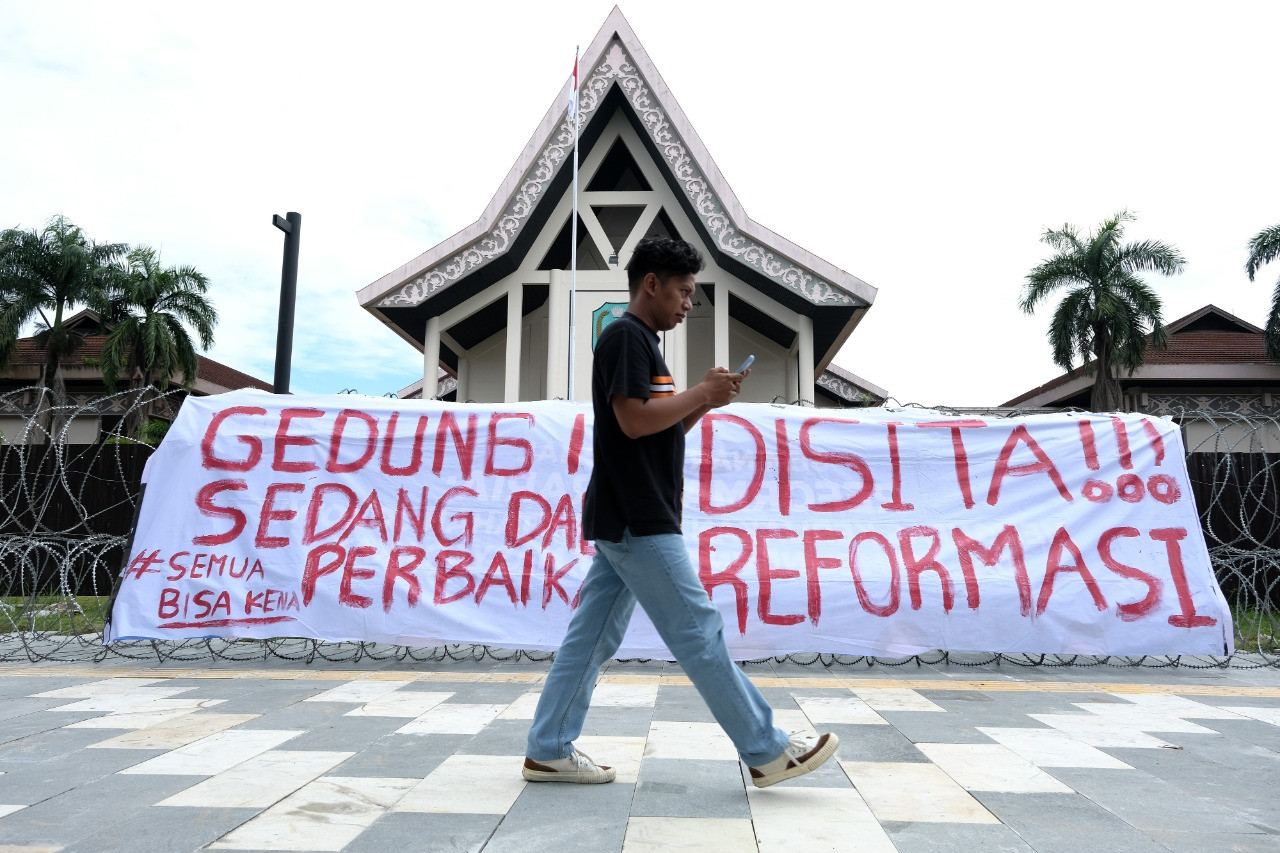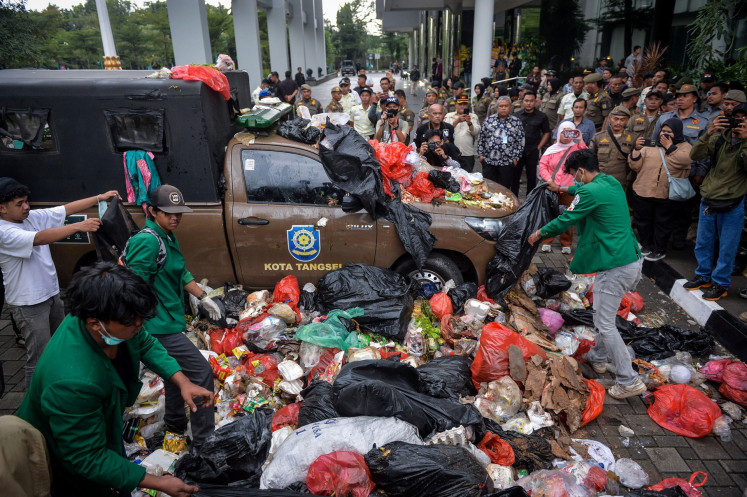Popular Reads
Top Results
Can't find what you're looking for?
View all search resultsPopular Reads
Top Results
Can't find what you're looking for?
View all search resultsConservative turn
As if kowtowing to the pressures of the conservative groups was not enough, the lawmakers have also chosen to incorporate illiberal provisions that turn the clock back on our democratic achievements.
Change text size
Gift Premium Articles
to Anyone
F
or decades, Indonesia has maintained its status as a country that is “neither religious nor secular” — a philosophical compromise, or conundrum, that reflects the longstanding ideological tensions between conservative and liberal forces in the country.
On Tuesday, the House of Representatives removed any ambiguities regarding the nation’s position toward religion by approving a new penal code that criminalizes sex outside marriage, a major policy shift that many fear could embolden various vigilante groups to encroach on our privacy in their attempt to police morality.
Under the new Criminal Code, which was ironically meant to modernize the archaic penal code created by the Dutch colonial government, nonmarital and extramarital sex, including cohabitation by unmarried couples, is punishable by one year in prison.
Indonesia may not be a supporter of the French concept of laïcité, with “traditions”, “local values”, “national characters” – often associated with organized religions – often cited as the sources of inspiration for our body politic and policymaking. But it has long kept the ideological pendulum in the balance by ensuring that, while local governments choose to enact sharia-based bylaws, our penal code remains largely secular.
The pendulum has now swung to the right under the new law. This could have serious ramifications in our culturally and ideologically diverse society, and will surely not help us in our attempt to become a key player in global politics and economy.
The passing of the new Criminal Code is a historic moment for Indonesia, which had struggled to ditch the colonial legislation after independence. But it is now historic for the wrong reasons — it has undone the progress we made.
It may have some progressive provisions, particularly with regard to the death penalty, but its problematic clauses outweigh them by a long way. As if kowtowing to the pressures of the conservative groups was not enough, the lawmakers have also chosen to incorporate illiberal provisions that turn the clock back on our democratic achievements.
It now bans insults to the president and other state institutions, including the House and the Constitutional Court. It also adopts a Cold War-era antileft policy, sending those found guilty of spreading Marxism, Leninism and communism to four years in prison, as well as other ideologies deemed anti-Pancasila.
The government has two years to draft the implementing regulations before the new law can fully take effect. We call on civil society groups to challenge the legislation at the Constitutional Court, though we have little confidence that the latter would be independent or progressive enough to right the wrongs of the lawmakers.
That said, the new penal code should not go unchallenged. Both the House and the government have practically ignored critical inputs from civil society groups about the dangerous provisions within the law. They claimed to have organized meetings for meaningful public consultation, but the approved code says otherwise.
There is no doubt that Indonesia is now entering the darkest episode of reformasi, in which illiberalism and religious conservatism come to serve the interests of the elite, undermining democracy and empowering its enemies.











